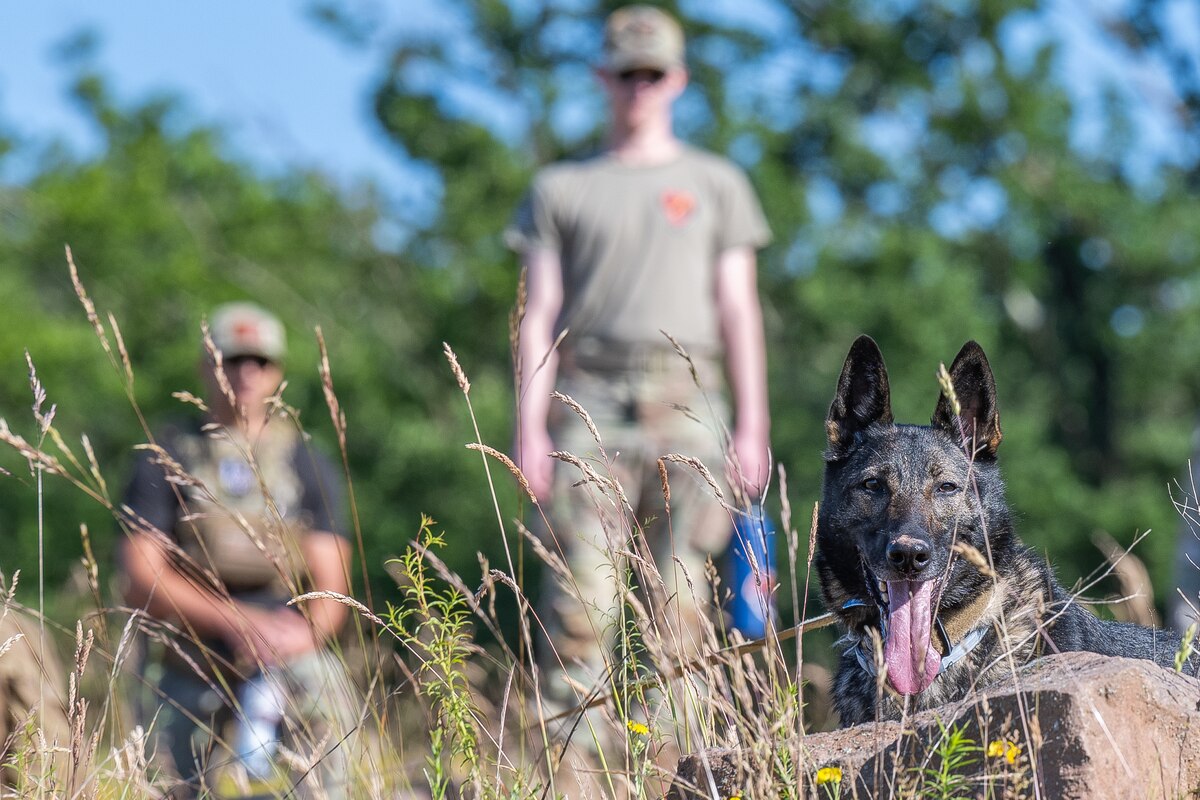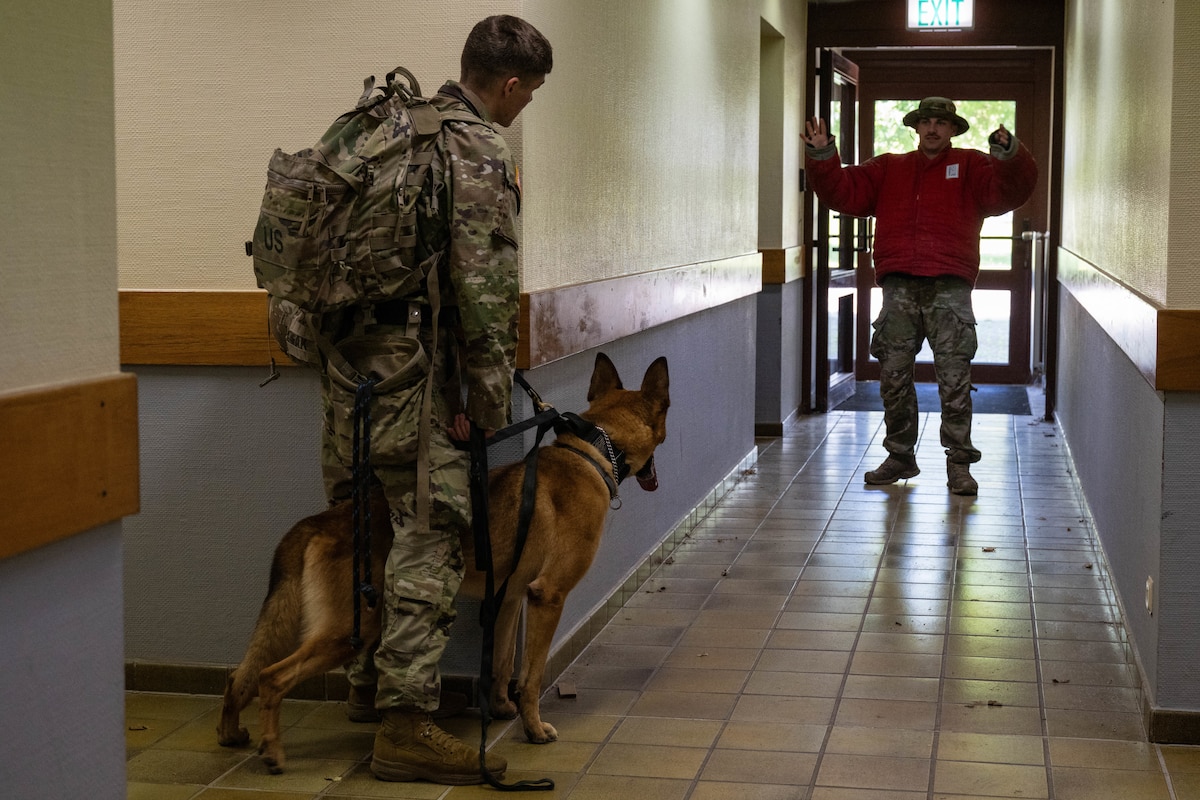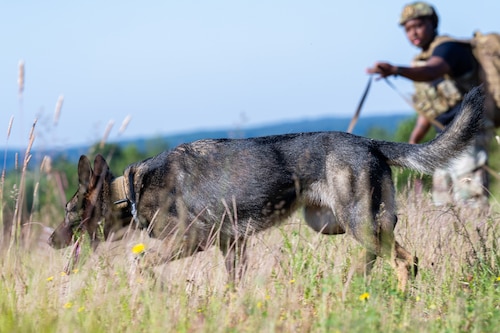The 52nd Security Forces Squadron Military Working Dog Section hosted U.S., German and Luxembourgish military units and law enforcement organizations for advanced interoperability training at Spangdahlem Air Base, June 26.
The training challenged the communication and command skills of the over 25 working dog teams and reinforced their ability to detect explosives and locate suspects and missing persons in a variety of environments.
"The knowledge learned from the events our teams were run through today will allow us to set forth a training plan that will strengthen our capabilities over time," said U.S. Army Sgt. Aaron Vinson, 100th Military Police (Military Working Dog) Detachment, 709th Battalion, 18th Military Police Brigade operations noncommissioned officer.
The 52nd SFS staged multiple training simulations throughout the seminar including explosive scent detection outdoors and in low-light conditions, which required the use of night vision goggles, search and rescue, and suspect apprehension. The opportunity to work through cultural differences and training techniques increased the operability of the course overall.
"These are areas we all have some level of expertise in," said Air Force Staff Sgt. Nathan Fortmayer, 52nd SFS/MWD Section trainer. "As the hosts, we wanted to make sure we provided teams with realistic scenarios the dog teams could very well face, so they not only get the training, but get it in a way where we all learn something from each other as a result."
Handlers also received instruction and hands-on practice in canine tactical combat casualty care from U.S. Army veterinarians and animal care technicians assigned to Veterinary Readiness Activity Rheinland-Pfalz, Germany. Handlers practiced first-aid techniques using the Advanced K9 Medical Trainer mannequin, which is designed to simulate breathing, verbal reactions and realistic stimuli.
"To us, these dogs are much more than dogs - they're partners," Fortmayer said. "We care about these dogs the same way we would any of other human because they defend us with their lives. It's critical we can help them when they are most vulnerable."
The training included the following units: 86th Security Forces Squadron at Ramstein Air Base, U.S. Army 100th MP (MWD) Detachment at Miesau Army Ammunition Depot, as well as the German Bundeswehr, Germany's Rhineland-Pfalz and Saarland Polizei, the Search and Rescue departments in Trier and Grand Ducal Police in Luxembourg.











